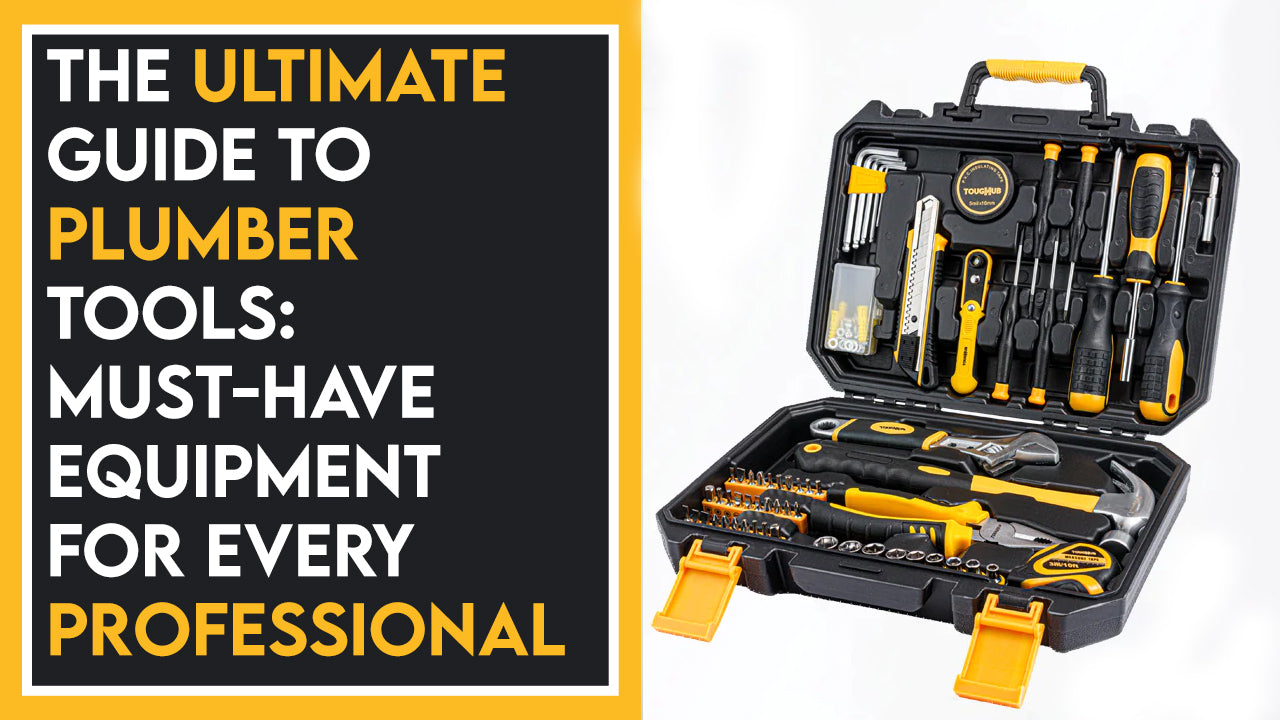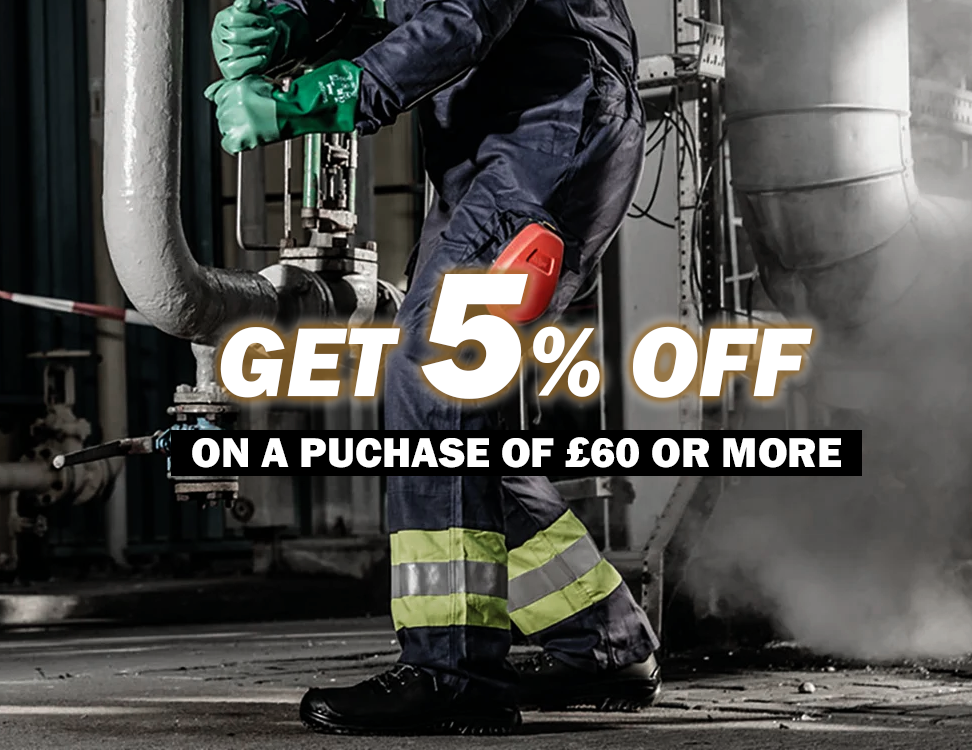The Ultimate Guide to Plumber Tools: Must-Have Equipment for Every Professional

As a professional plumber, you know how important it is to have the right tools for the job. From fixing leaky pipes to installing new plumbing fixtures, the right equipment can make all the difference in the success of your work. In this blog post, we'll take a comprehensive look at the must-have plumber tools, including their uses and benefits. We'll also explore why having a proper set of tool bags and belt with kneepad are crucial for your comfort and productivity.
Plumber Tools: The Essentials
- Pipe Wrench
The pipe wrench is a fundamental tool for any plumber. It's used for gripping and turning pipes, fittings, and nuts. It's available in different sizes, and you should have at least two of them. A pipe wrench is perfect for tightening or loosening threaded connections, and it has a strong grip that can hold pipes in place while you work on them.
- Basin Wrench
The basin wrench is an essential tool for loosening nuts in tight spaces, such as under sinks and behind toilets. Its long handle and swiveling jaw make it easier to access hard-to-reach areas. It has a spring-loaded jaw that grips nuts securely, and its adjustable design makes it versatile and suitable for different jobs.
- Adjustable Wrench
An adjustable wrench is a versatile tool that can be used for a wide range of plumbing tasks. It's perfect for tightening or loosening nuts and bolts of various sizes. It has an adjustable jaw that allows you to fit it onto different-sized nuts and bolts.
- Teflon Tape
Teflon tape, also known as plumber's tape, is a useful tool for creating watertight seals on threaded pipe connections. It's made of a thin, white material that's coated with Teflon. It's wrapped around the threaded part of the pipe before it's screwed together, creating a tight seal that prevents leaks.
- Hacksaw
A hacksaw is an essential tool for cutting through metal pipes, screws, and bolts. It has a sharp, fine-toothed blade that can cut through hard materials with ease. It's also useful for cutting through plastic pipes, making it a versatile tool in your toolbox.
- Plunger
A plunger is a lifesaver in emergency situations. It's used for clearing clogs in toilets and drains. It creates suction, which dislodges blockages, allowing water to flow freely again. It's an essential tool for any plumber, and you should have at least one in your toolkit.
- Snake
A snake, also known as an auger, is a tool used for clearing stubborn clogs and blockages in pipes. It's a flexible, coiled wire that's inserted into the pipe and rotated, allowing it to break up and remove blockages. It's an essential tool for clearing out pipes that a plunger cannot reach.
- Pipe Cutter
A pipe cutter is used for cutting through copper and plastic pipes with precision and ease. It has a sharp blade that creates a clean, even cut. It's perfect for cutting pipes to the right length or cutting them to fit in tight spaces.
- Pliers
Pliers are an essential tool for gripping and manipulating objects. They're versatile and can be used for a wide range of plumbing tasks. They're available in different sizes and shapes, and you should have at least two pairs of them in your toolkit.
- Thread Sealant
Thread sealant is a useful tool for creating watertight seals on threaded pipe connections. It's applied to the threads of the pipe before it's screwed together, creating a tight seal that prevents leaks. It's an essential tool for ensuring the longevity of your plumbing work.
Plumber Tool Bags: Your Professional Partner
There are several types of tool bags that are suitable for plumbers. Some popular options include:
Backpack-style tool bags: These bags are designed to be worn like a backpack, making them ideal for plumbers who need to carry a lot of tools and move around frequently. They typically have multiple compartments and pockets for organizing tools and accessories.
- Shoulder-Style Tool Bags: These bags are worn over the shoulder and can be carried like a messenger bag. They're a good option for plumbers who want to keep their tools easily accessible but don't need to carry as much as a backpack-style bag.
- Rolling Tool Bags: These bags have wheels and a telescoping handle, making them easy to roll from job to job. They're a great option for plumbers who need to carry a lot of heavy tools and want to avoid straining their back.
- Tote-Style Tool Bags: These bags are designed to be carried by hand and are typically made of durable materials like canvas or leather. They're a good option for plumbers who prefer a more traditional tool bag and don't need to carry as many tools.
When choosing a plumber tools bag, it's important to consider the size and weight of your tools, as well as your personal preferences for style and organization. Look for a bag that is durable, well-made, and has plenty of pockets and compartments to keep your tools organized and easily accessible. You can have them in Canvas, Leather, Nylon, and Polyester to suit your needs.
Tool Belt: Anchor for Your Tools
A tool belt is an essential accessory for any plumber. It provides quick and easy access to your tools, allowing you to keep your hands free while working. A high-quality tool belt should be made of durable materials and have enough pockets and loops to hold all your necessary tools securely. Look for a tool belt pouch with adjustable straps to ensure a comfortable and snug fit. Plumbers require a tool belt that is durable, comfortable, and capable of holding a variety of tools. Some suitable types of tool belts for plumbers include:
- Standard Tool Belt: A standard tool belt is a good choice for plumbers who need to carry a variety of tools. It typically features a series of pockets and loops for holding wrenches, pliers, and other hand tools.
- Suspender Tool Belt: A suspender tool belt can be a good choice for plumbers who need to carry heavy tools or who work in tight spaces. The straps distribute the weight of the tools evenly across the body, reducing strain on the back and shoulders.
- Modular Tool Belt: A modular tool belt allows plumbers to customize the layout of their tool belt to fit their specific needs. They can add or remove pockets and holsters as needed, making it easier to access the tools they use most frequently.
Kneepads: Say No to Knee Knocks
A kneepad is also an important accessory for plumbers, as it helps protect your knees while working in tight spaces and hard surfaces. Look for a kneepad made of thick, durable material that can withstand the wear and tear of frequent use. It should also be comfortable and provide enough cushioning to support your knees throughout the day.
Knee pads are an important accessory for plumbers who spend a lot of time kneeling on. There are several types of knee pads available, but some of the ideal types for plumbers include:
- Hard Shell Knee Pads: Hard shell knee pads feature a tough outer shell that protects the knees from impact and abrasion. They're ideal for plumbers who work in rough or uneven terrain or who need to kneel on hard surfaces like concrete or metal.
- Soft Shell Knee Pads: Soft shell knee pads are made from materials like neoprene or foam and are designed to provide cushioning and support. They're ideal for plumbers who need to kneel on softer surfaces like carpet or grass.
- Gel-Filled Knee Pads: Gel-filled knee pads are designed to distribute pressure evenly across the knee, providing support and comfort. They're ideal for plumbers who need to kneel for extended periods of time.
- Slip-On Knee Pads: Slip-on knee pads are easy to put on and take off and are ideal for plumbers who need to move quickly from one job site to another. They're typically made from stretchy materials like spandex and are designed to fit snugly over the knee.
When choosing knee pads for plumbing work, it's important to consider factors such as comfort, durability, and the level of protection you need. Look for knee pads that fit well and are made from high-quality materials, so they can withstand frequent use and abuse on job sites. It's also a good idea to choose knee pads that are easy to clean and maintain, so they stay in good condition for longer.
Get, Set, Go!
In conclusion, having the right tools is crucial for any plumber. The above list covers the essential tools that every plumber should have in their toolkit. Additionally, investing in a high-quality tool belt and kneepad can improve your efficiency and help prevent injury while on the job. With these tools and accessories, you'll be well-equipped to handle any plumbing task that comes your way.

